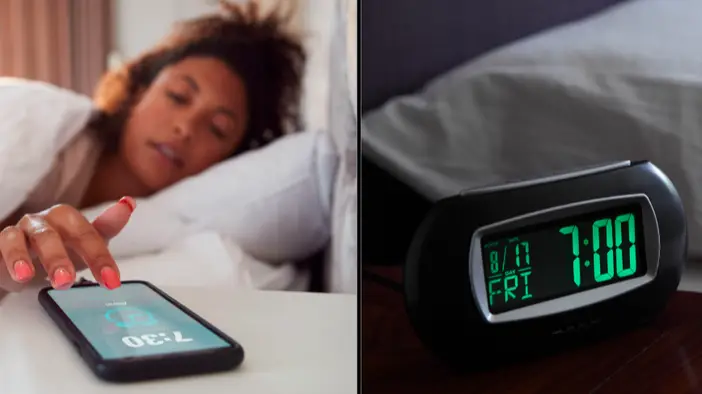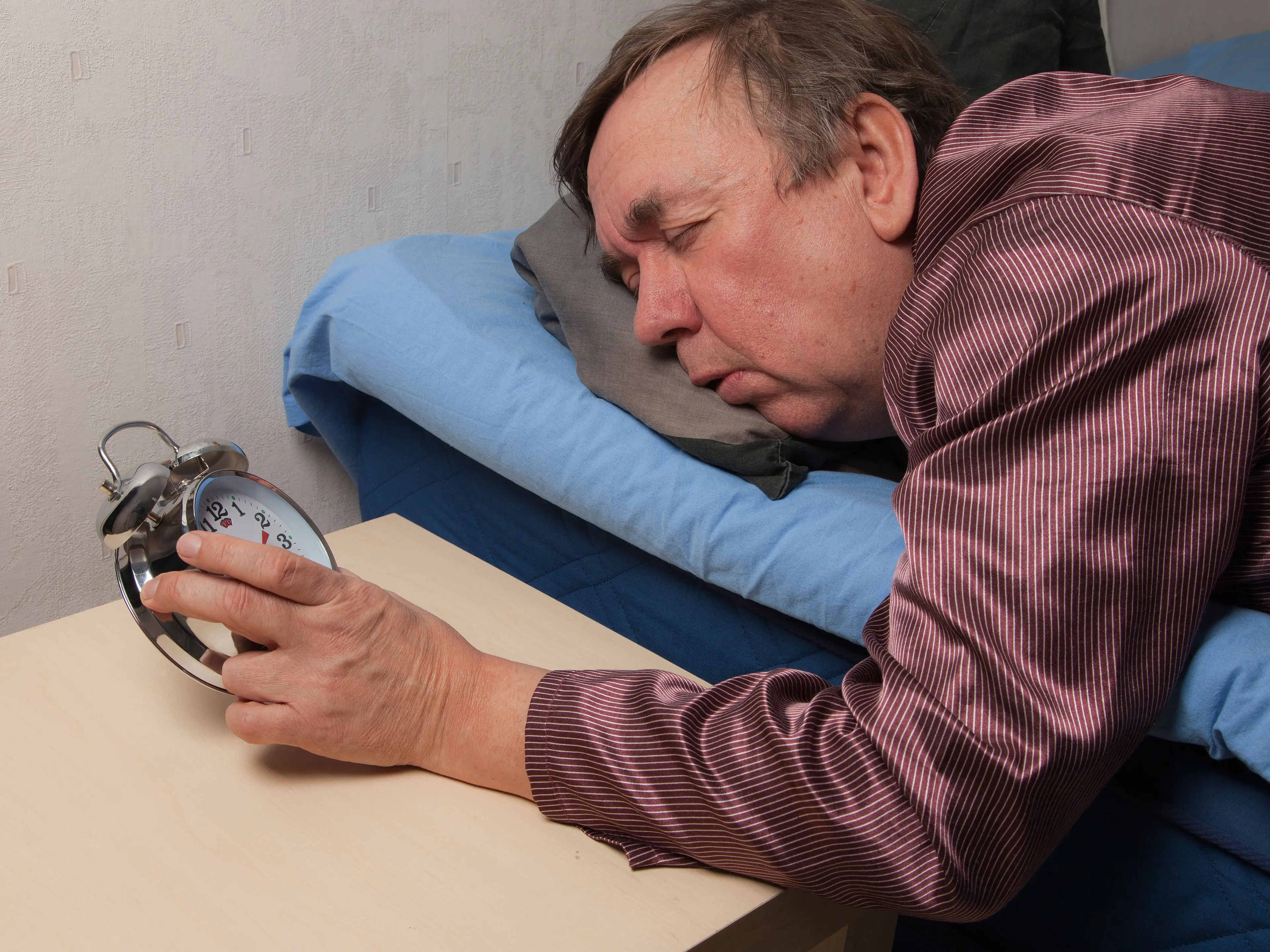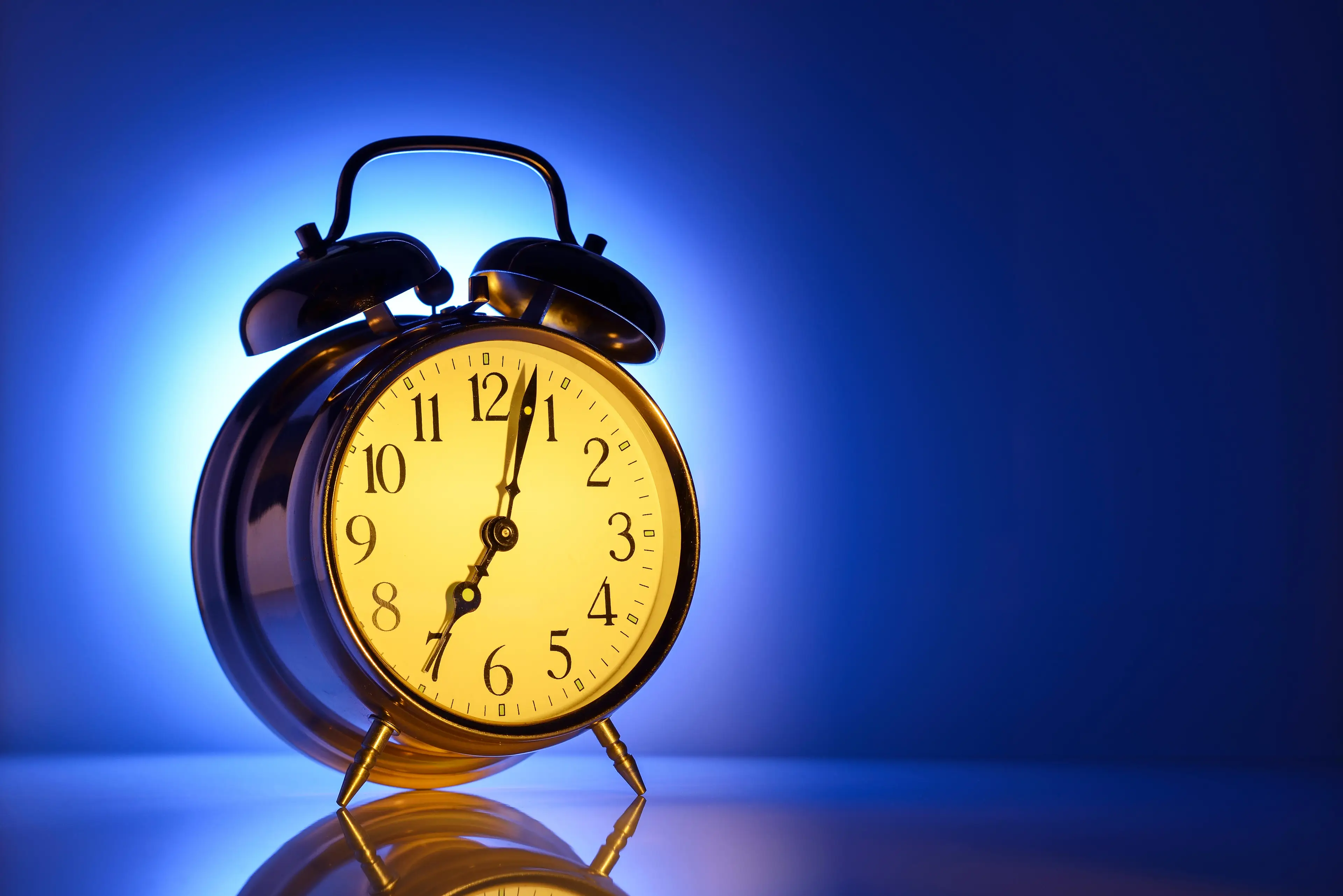
If you've ever wondered why you often find yourself waking up just before the dreaded alarm goes off, we have some news for you. It turns out that there is an actual scientific reason behind it.
It is quite surprising that our bodies can sense time while we are in a deep sleep - but how exactly does it work?
Well, your body is controlled by a ball of nerves known as the suprachiasmatic nucleus, which sits in the middle of the brain.
Advert
The nerves play a vital role as they control your blood pressure, body temperature and most importantly in unravelling this scientific mystery, our sense of time.
The suprachiasmatic nucleus can also decide when we you are feeling sleepy and when you feel wide awake, so you know who to blame when you are wanting a snooze despite eight hours sleep the previous night.
Your body clock responds to a routine, becoming more efficient when you head for bed at the same time each night and wake up at the same time each morning.

A protein called PER is very important in this situation because it regulates your sleep-wake cycle.
The level of proteins will rise and fall throughout the day, peaking in the evening and at their lowest at night.
Low levels of this protein will lead to low blood pressure, which makes us groggier and ready for bed.
Scientists say that if you stick to a consistent sleep schedule, your body will learn to adapt and increase your levels of PER just before your alarm is due to go off.
They say this increase will usually happen around an hour before your alarm is due to go off, as we release stress hormones.
When you haven't woken up before the alarm, it can be a bit of a shock, and as result can cause stress to your body.

To avoid this, your body produces PER earlier in the night - and this is why the reason you may find yourself waking up a few minutes before the alarm goes off.
In other sleepy news, a sleep expert recently shared the perfect breathing hack to help you get back to sleep.
Phil Lawlor explained how breathing exercises can help you calm down and nod back off to sleep if you wake up.
He recommends the 4-7-8 technique, which involves inhaling through your nose for four seconds, hold your breath for seven seconds, and exhaling through your mouth for eight seconds.
Might give it a go tonight.